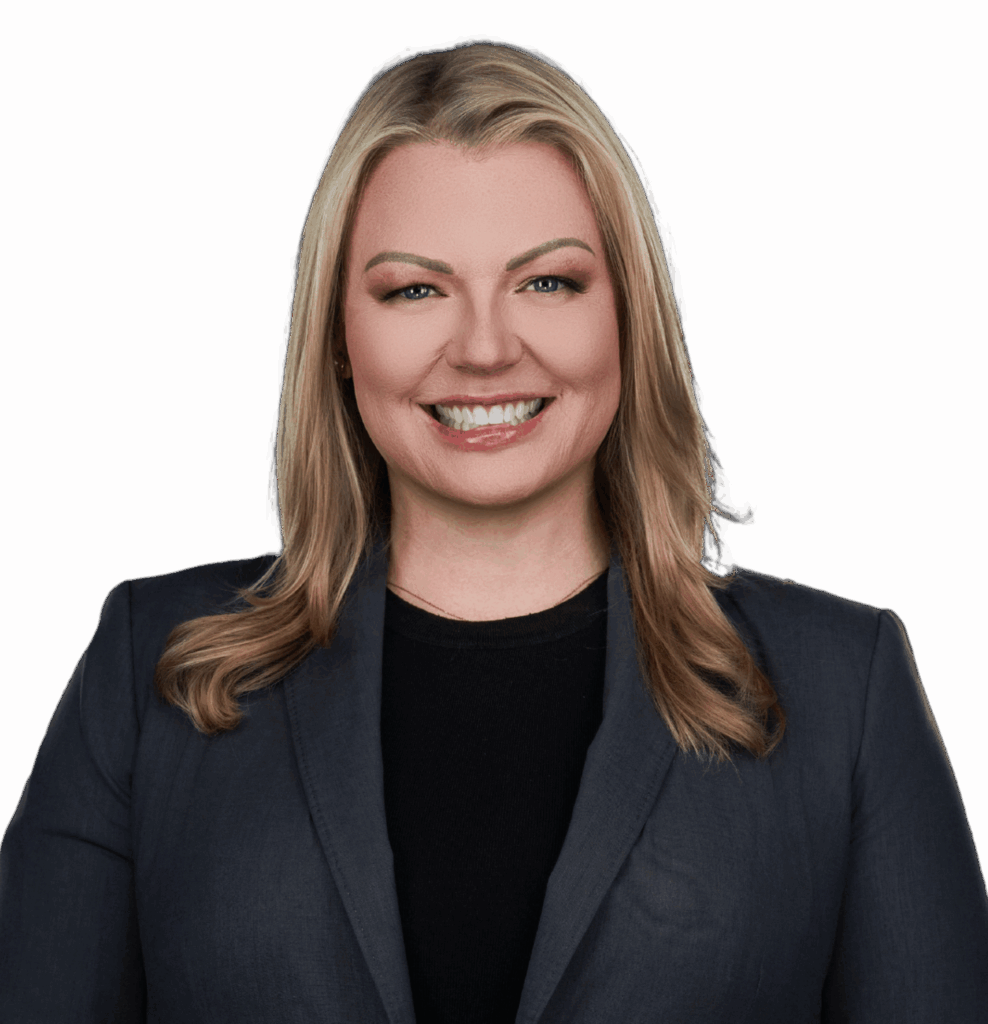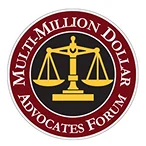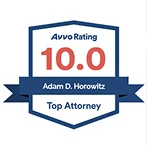If you or a loved one are a survivor of sexual abuse by a clergy member or anyone within a church organization, you have legal options.
Florida law gives survivors a way to hold churches and their leadership responsible when they ignored warning signs, failed to supervise, or protected the wrong people. A civil claim is not just about compensation. It is a way to uncover what happened, hold the institution accountable, and secure the support you need to move forward.
At Horowitz Law, we focus exclusively on sexual abuse cases. For decades, we have pressed churches, denominations, and religious organizations to answer for their failures. We take on the legal work so you do not have to relive these details alone or deal with institutions that may try to protect themselves before protecting you.
If you want to understand your options or talk through what happened in a safe, confidential setting, call (954) 641-2100. Our Orlando church & clergy sexual abuse lawyers are here to listen and help you take the next step when you are ready.
Orlando Church & Clergy Sexual Abuse Guide
- Why Survivors in Orlando Trust Horowitz Law
- What Does Justice and Compensation Look Like in a Clergy Abuse Case?
- Civil vs. Criminal Cases: What’s the Difference for You?
- Understanding the Institution's Position
- How Do We Prove What Happened Decades Ago? The Discovery Process
- Florida's Laws on Clergy Sexual Abuse
- Steps You Can Take to Protect Your Rights
- Frequently Asked Questions for Orlando Clergy Abuse Survivors
- Your Voice Deserves to Be Heard
Why Survivors in Orlando Trust Horowitz Law
Our Singular Focus on Representing Survivors
Many firms handle a wide range of personal injury claims. We don't.
Horowitz Law is built exclusively to represent survivors of sexual abuse. This sharp focus gives us a deep understanding of the legal and personal dynamics of these cases. We’ve managed hundreds of claims against powerful institutions nationwide, including numerous religious organizations.

A History of Holding Institutions Accountable
For more than twenty years, founder Adam Horowitz has been at the forefront of this fight. Our firm was among the first to pioneer litigation against the Catholic Church in the early 2000s, helping to expose systemic cover-ups. Our legal actions have compelled the release of confidential church records and driven policy changes designed to protect others.
Led by an Accomplished Advocate for Survivors
Adam Horowitz's commitment to this work is widely recognized. He was named South Florida’s Most Effective Lawyer in Personal Injury for his groundbreaking sexual abuse litigation. He also holds an AV® Preeminent™ rating from Martindale-Hubbell, the highest peer-review honor for legal ability and ethical standards.
While his work has appeared in The New York Times, The Washington Post, and CNN, his focus remains entirely on the dignity and needs of his clients.
Our Track Record of Meaningful Results
We have secured significant verdicts and settlements for survivors of clergy abuse. In one notable case, Elk v. United States, we successfully used the “Bad Man Clause” of the Fort Laramie Treaty to recover damages for a Native American sexual assault survivor.
While many settlements are kept confidential to protect our clients’ privacy, our history shows a relentless commitment to pursuing the maximum compensation the law allows.
Our Promises to You:
- Free and Completely Confidential Case Review: Your conversation with us costs nothing and comes with no strings attached.
- No Win, No Fee Guarantee: You owe us no attorney's fees unless we successfully recover compensation for you. This is known as a contingency fee basis.
- Direct and Personalized Attention: You will work directly with our dedicated attorneys, like DeeDee Scheller and Jessica Arbor, who are consistently praised by former clients for their compassion and steady support.
Representing Survivors Across Orlando and Florida
Our main office is located at 17 E Pine St, Orlando, FL 32801, 3 minutes from downtown Orlando, just a short walk from the Orange County Regional History Center. We represent survivors throughout Florida, including the entire Orlando area. We can meet with you virtually or at any location where you feel safe and comfortable.
What Does Justice and Compensation Look Like in a Clergy Abuse Case?
A civil claim has two primary goals: accountability and financial resources to help you rebuild.

No amount of money can undo the harm, but it can provide for therapy, education, and stability. A lawsuit allows you to seek justice on your own terms, completely separate from the criminal system.
Compensation in these cases generally falls into three categories:
- Economic Damages: This is straightforward repayment for financial losses. It includes the cost of psychological counseling, lost income if the trauma affected your career, and other expenses directly related to the abuse.
- Non-Economic Damages: This compensation addresses the invisible but deeply felt harm. It is for the pain and suffering, the emotional distress, and the loss of enjoyment in life that followed the abuse.
- Punitive Damages: When an institution’s behavior was particularly reckless, like actively hiding an abuser’s past, a jury may award punitive damages. As outlined in F.S. 768.72, these are not meant to cover a loss but to punish the organization and deter similar conduct from happening again.
How an Institution's Actions Impact Your Claim
In most clergy abuse cases, the claim targets both the individual abuser and the institution that employed them, such as a diocese or church. If the organization knew, or should have known, about the abuser’s behavior and failed to act, or worse, moved the abuser to another parish, its liability grows substantially. Our investigation will focus on uncovering any history of concealment or negligence.
Civil vs. Criminal Cases: What’s the Difference for You?
A single act of abuse can trigger two separate legal processes: one civil and one criminal.
A criminal case is brought by the government. A prosecutor, representing the state, files charges to punish the wrongdoer for breaking the law. The goal is public safety and penalties like jail time or registration as a sex offender. You are a witness, but the state controls the case.
A civil case, on the other hand, is brought by you. Its purpose is not to imprison the abuser but to provide you with financial compensation for the harm you endured. Here, you are the plaintiff, and you have much more control over the proceedings.
A Lower Burden of Proof
Perhaps the biggest difference is the burden of proof.

In a criminal trial, the prosecutor must prove the defendant is guilty “beyond a reasonable doubt.” This is an extremely high standard.
In a civil trial, we only need to show by a “preponderance of the evidence” that the abuse likely occurred. In simple terms, all this means is that we must show that it was more likely than not that the accused is responsible. This is why a civil claim may succeed even if criminal charges were never filed or did not result in a conviction.
Understanding the Institution's Position
Pursuing a claim against a religious institution is not a typical personal injury case. These organizations possess significant financial resources and legal teams dedicated to protecting their public image and assets. Their response is predictable, and we anticipate it.
Here is what their lawyers will likely argue:
- The Institution Isn't Responsible: Their attorneys may argue the church is not liable for the actions of one individual, claiming the abuser was acting outside the scope of their employment. Our work is to counter this by uncovering the institution’s own potential failures, in hiring, supervising, or retaining the abuser long after they knew a risk existed.
- The "Passing the Plate" Argument: In court, church lawyers have been known to suggest that a large verdict will financially harm the local congregation. This approach is designed to sway a jury's sympathies. We reframe this by focusing the court's attention on the institution's legal and moral duty to protect its most vulnerable members.
- Appeals to Faith: The institution may attempt to handle the situation "internally" or appeal to your sense of community to discourage a lawsuit. It is important to remember that their primary interest is self-preservation. Our only interest is protecting you.
How Do We Prove What Happened Decades Ago? The Discovery Process
Many survivors worry that too much time has passed to build a strong case. But memories and testimony are not the only forms of evidence. Much of our work happens during a pre-trial phase called discovery.
During discovery, we formally request and obtain evidence from the other side. We methodically comb through decades of records, looking for patterns of concealment and negligence.
Our investigation typically uncovers:
- Internal Diocesan Files: We demand access to personnel files, which may contain prior complaints, disciplinary actions, or documented behavioral issues.
- Transfer Records: One of the clearest signs of a cover-up is the "shuffling" of abusive priests from one parish to another. We trace their assignment history to establish this pattern.
- Letters and Memos: Correspondence between bishops, vicars, and other church officials can reveal who knew what and when they knew it.
- Depositions: We conduct sworn, out-of-court testimony from church officials, other employees, and even other survivors to lock in their stories and uncover new information.
Florida's Laws on Clergy Sexual Abuse
Deadlines for Filing a Lawsuit (Statute of Limitations)

A statute of limitations is a deadline for filing a lawsuit. For clergy sexual abuse cases, especially those from childhood, these deadlines are not always straightforward.
For anyone who was abused under the age of 16, there is now no statute of limitations for filing a civil claim. This change recognizes that it takes many survivors years, or even decades, to be ready to come forward. For abuse that happened at age 16 or 17, the time limit is generally seven years after turning 18 (up to age 25).
Even with these extended windows, it is better to act sooner. Evidence becomes harder to find, witnesses may move or pass away, and memories can fade over time.
Proving Institutional Negligence
To hold a church or religious organization financially liable, we generally need to prove one of the following:
- Negligent Hiring or Retention: The church hired someone it knew, or should have known, posed a risk. Alternatively, the church kept the person employed after learning of their abusive behavior.
- Negligent Supervision: The organization failed to properly oversee its clergy and staff, which allowed the abuse to happen.
- Fraudulent Concealment: The church knew about the abuse and took active steps to hide it from the public and law enforcement.
Steps You Can Take to Protect Your Rights
What to Do:
- Write Everything Down: Document all you can remember about the abuse such as dates, locations, names, and specific events. It is also helpful to keep a journal detailing how the trauma continues to affect your daily life. This becomes a powerful, personal record.
- Preserve Any Evidence: If you have any letters, emails, photos, or gifts from the abuser or church officials, keep them in a safe place. Do not delete any digital messages.
- Continue Your Treatment: If you are in therapy, it is important to continue. Your medical records provide a documented history of the harm you have suffered and your efforts to heal.
What to Avoid:
- Speaking with Church Representatives Alone: If officials from the diocese or church contact you, you should decline to speak with them until you have consulted a lawyer. Their job is to gather information to protect the institution. Politely tell them to contact your attorney.
- Discussing Your Case on Social Media: Anything posted online can be taken out of context and used against you by the institution’s lawyers. It is safest to avoid posting anything about your case or emotional state while the legal process is underway.
Frequently Asked Questions for Orlando Clergy Abuse Survivors
What if the abuse happened many years ago when I was a child?
Do not assume it is too late to act. As mentioned earlier, Florida has eliminated the civil statute of limitations for abuse that occurred to a child under 16. The rules are complicated, but we can evaluate the specific details of your case to determine your eligibility.
I'm worried about my privacy. Will my name become public?
This is a common and valid concern. We can often file lawsuits using a pseudonym like "Jane Doe" or "John Doe" to protect your identity from public records. The vast majority of these cases are resolved through confidential settlements, preventing the details from becoming public.
Will my therapy records be used in the case?
Therapist-patient communications are privileged and generally confidential. However, by filing a lawsuit seeking damages for emotional distress, you may put your mental state at issue, which could make some records relevant. We work aggressively to protect your privacy, challenging overly broad requests and ensuring only necessary information is shared under strict protective orders.
What if I don't have any physical evidence of the abuse?
Most survivors do not have physical proof. This is not a barrier. These cases are built on your testimony, the institution's internal records, and sometimes the testimony of other witnesses or survivors we uncover. Your story is evidence.
Your Voice Deserves to Be Heard
It’s common to feel like nothing will change. That the institution is too influential, the abuse happened too long ago, or that speaking up won’t make a difference. Those thoughts are understandable, but they are not the end of the story.

The law gives survivors a way to hold even the largest religious organizations accountable for the choices they made and the harm they allowed. When your story is brought into the light, it can support your healing and push institutions to make changes they should have made long ago.
If you want to understand what steps are available to you, our Orlando sexual abuse lawyers are here to talk through it at your pace. The conversation is confidential, centered on your needs, and meant to bring clarity, not pressure. Contact Horowitz Law at (954) 641-2100 for a free consultation.